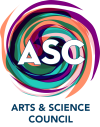Our Daily Bread Provides Inspiration Through the Art and Science of Baking

By Bernie Petit
Public Relations & Marketing Director
For centuries, bread has been at the center of every culture’s food tradition.
It sustains us. It unites us. And now, through the work of the Our Daily Bread Foundation, it provides purpose for disenfranchised young people in Charlotte-Mecklenburg.
In August, Our Daily Bread received a $7,500 Cultural Vision Grant from ASC to support its Micah’s Bakery Program, a pilot program for youth involved in the court system to learn the history, art and science of baking authentic bread while celebrating and uniting cultures in our communities.
“I have these youth come in here and know nothing about baking whatsoever,” said Kim Alexander, who launched the Our Daily Bread Foundation in 2018. “Just to see them love it and eat [bread] and share it, that’s what breaking bread means.”
It’s deeply personal for Alexander, who learned to cook in her hometown of New Orleans before furthering her culinary training at Johnson & Wales after moving to Charlotte from Virginia (where she relocated following Hurricane Katrina) in 2015.
Alexander said her faith led her to establish Our Daily Bread to work with young adults at pivotal points in their lives and help them become productive and fulfilled community members.
Like many of the youth she now works with, Alexander experienced significant trauma during her formative years. Baking, she found, provided a sense of accomplishment.
“I found that when I was even baking and using dough, I was able to create something I had never seen before,” she said.
It’s one of the lessons she tries to pass on to the 16- to 24-year-olds who have been showing up every weekend since September at First United Methodist Church in uptown Charlotte for Our Daily Bread’s Micah’s Bakery program.
The training program, which intentionally limits class size to 12 or fewer, provides participants discipline and teaches cleanliness, teamwork, leadership skills and entrepreneurship. Each participant learns to lead a class, including reviewing all baking instructions and ensuring their peers successfully get through each step of the process.
“I kept building and building to where now they have responsibilities,” Alexander said. “They’re now learning to operate in an environment where there is discipline.
“Once you continue to introduce them to things that are even better than what the alternative is or what they’re used to, then that becomes in itself a transformation.”
The art of breadmaking, Alexander said, is using creativity to transform dough into something uniquely yours. The science is understanding how yeast is activated during the process and how one ingredient affects another.
While the tangible outcome of each lesson is a freshly baked loaf of bread, the intangible result is something much greater.
“They’re proud of making their bread, they share it with their families,” she said. “I think it becomes something that they did, which I think becomes the biggest achievement.”
The participants aren’t the only ones who have benefitted.
“As much as this program means to other people, it’s also healing to myself and where I come from and where I want to land or arrive,” she said. “It’s a very fulfilling thing to realize what your purpose is.”


